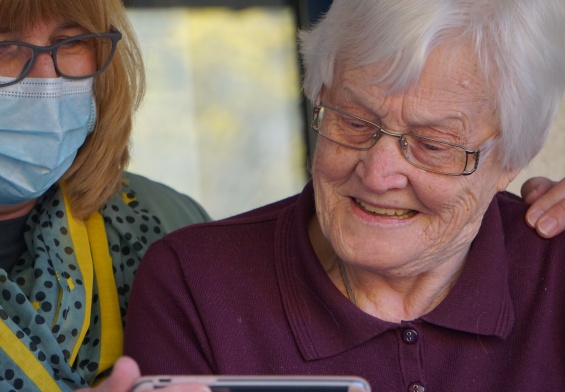As we age, taking care of our heart becomes more than a good idea—it becomes a necessity. Heart disease remains the leading cause of death in the U.S., and for older adults, prevention and support at home can make all the difference. That’s where home care steps in—not only providing support with daily activities but also playing a crucial role in maintaining a heart-healthy lifestyle through nutrition, medication reminders, and sometimes, supplementation.
If you’re searching for quality home care in Tustin, home care in Corona, or home care in Santa Rosa, it’s important to consider how caregivers can support holistic heart health—not just in emergencies, but every day.
Why Heart Health Matters for Seniors
Aging naturally brings changes to the cardiovascular system. Arteries stiffen, blood pressure may rise, and cholesterol levels can become harder to manage. While regular checkups and prescribed medications are key to managing these risks, lifestyle choices—including diet, exercise, and stress management—play just as critical a role.
But maintaining these routines isn’t always easy for seniors living alone or recovering from an illness. That’s where home caregivers in Chino, CA, and nearby areas come in: providing personalized care plans, daily structure, and oversight that promote better health outcomes.
How Home Care Supports Heart Health
Whether you’re located in home care in Irvine or home care in Tustin, today’s in-home caregivers are trained to provide much more than just companionship. Here are a few heart-focused benefits:
1. Medication Management
Many heart conditions require a complex medication routine. Home caregivers ensure medications are taken on time and can monitor for side effects or missed doses.
2. Nutrition and Meal Prep
Heart-healthy diets like DASH or Mediterranean can be hard to prepare alone. Caregivers help with grocery shopping, cooking low-sodium meals, and encouraging hydration.
3. Monitoring Vital Signs
Some home care agencies provide caregivers trained to monitor blood pressure, heart rate, or fluid retention—key indicators of cardiovascular stress.
4. Physical Activity Support
Staying active is critical, but seniors often need help getting started or staying motivated. Caregivers can assist with walking routines, light exercise, or even physical therapy follow-through.
5. Stress Management and Social Support
Loneliness and stress increase heart disease risk. Home caregivers offer meaningful social interaction and can incorporate relaxation techniques like deep breathing or mindfulness into daily routines.
Should Seniors Take Supplements for Heart Health?
If you’ve browsed the vitamin aisle or health blogs lately, you’ve likely seen claims about CoQ10, omega-3s, magnesium, and red yeast rice promoting heart health. But what’s fact and what’s marketing hype?
Here’s a breakdown of common heart health supplements and what caregivers should know:
1. Omega-3 Fatty Acids (Fish Oil)
These are often promoted for their ability to lower triglycerides and support overall heart health. While evidence shows some benefits—especially for individuals with high triglycerides—the results are mixed when it comes to preventing heart attacks or strokes.
How caregivers help: If a doctor recommends fish oil, a home caregiver can ensure it’s taken correctly and monitor for interactions with blood thinners or other heart medications.
2. Coenzyme Q10 (CoQ10)
Often recommended for those taking statins, CoQ10 helps with energy production in cells and may reduce muscle pain associated with cholesterol-lowering medications.
Tip for families using home care in Santa Rosa: CoQ10 may offer benefits, but should only be taken under medical supervision, especially in older adults with heart failure.
3. Red Yeast Rice
This supplement contains natural statin-like compounds and is marketed for lowering cholesterol. However, its potency varies, and it can cause liver damage or interact with medications.
Home caregivers in Placentia, CA, should always flag red yeast rice use to the care team—it’s not safe for everyone and should never replace prescription statins without approval.
4. Magnesium
Low magnesium levels have been linked to arrhythmias (irregular heartbeats) and high blood pressure. Some seniors benefit from magnesium supplementation, especially if dietary intake is low.
5. Fiber and Plant Sterols
These natural compounds can help lower LDL (bad) cholesterol. Seniors who can’t get enough fiber through diet may benefit from psyllium or oat-based fiber supplements.
Supplements Are Not a Shortcut
Despite marketing claims, supplements are not a replacement for lifestyle changes or medical care. That’s why home care in Novato, CA, and nearby regions focuses first on helping seniors build sustainable habits: heart-healthy meals, regular movement, medication adherence, and emotional well-being.
If supplements are recommended by a physician, a professional caregiver can:
- Remind the client to take them consistently
- Watch for side effects or interactions
- Ensure they’re sourced from reputable brands with third-party testing
Lifestyle First: The Core of Heart-Healthy Home Care
Most cardiologists agree: your fork, feet, and stress levels matter more than your supplement shelf. Seniors looking to improve heart health should focus on:
- A plant-forward, low-sodium diet
- At least 150 minutes of moderate activity per week
- Healthy sleep and hydration
- Emotional connection and routine
That’s where compassionate home caregivers make a lasting impact—by helping seniors make the right choices every day, not just during doctor visits.
Whether it’s home care in Rohnert Park, CA, or home caregivers in Yorba Linda, CA, these services empower seniors to take back control of their health—one step, meal, and supplement at a time.
What Families Should Know Before Starting Supplements
If you’re considering heart health supplements for a loved one receiving home care, keep these tips in mind:
- Always talk to the doctor first. Some supplements can interact with blood pressure meds, blood thinners, or diuretics.
- Use USP or NSF-certified brands. These seals ensure products meet safety and potency standards.
- Track any changes. Caregivers can help record blood pressure, weight, and symptoms after starting a new supplement to assess effectiveness.
- Look for food first. Whole foods often offer the same nutrients with added benefits—like fiber, antioxidants, and satiety.
Final Thoughts: Wholehearted Care Begins at Home
Heart health is a lifelong journey, and for older adults, it’s a team effort. Home caregivers provide more than just a helping hand—they support structure, motivation, and safety in managing chronic conditions like heart disease.
If your family is exploring home care in Tustin, home care in Corona, or home care in Santa Rosa, look for agencies that understand the connection between daily habits and cardiovascular well-being. A skilled caregiver can help manage everything from meal prep to supplement reminders—creating a comprehensive, compassionate care plan built around the heart.
Whether you’re just beginning to explore care options or already supporting a loved one with heart concerns, the right blend of lifestyle support and informed supplementation can make all the difference.
Resources:
- Supplements for Heart Health: What You Need to Know – GoodRX
- The Truth About 4 Popular Heart Health Supplements – Johns Hopkins Medicine
- Home Remedies: Lifestyle changes can help your heart health – Mayo Clinic




